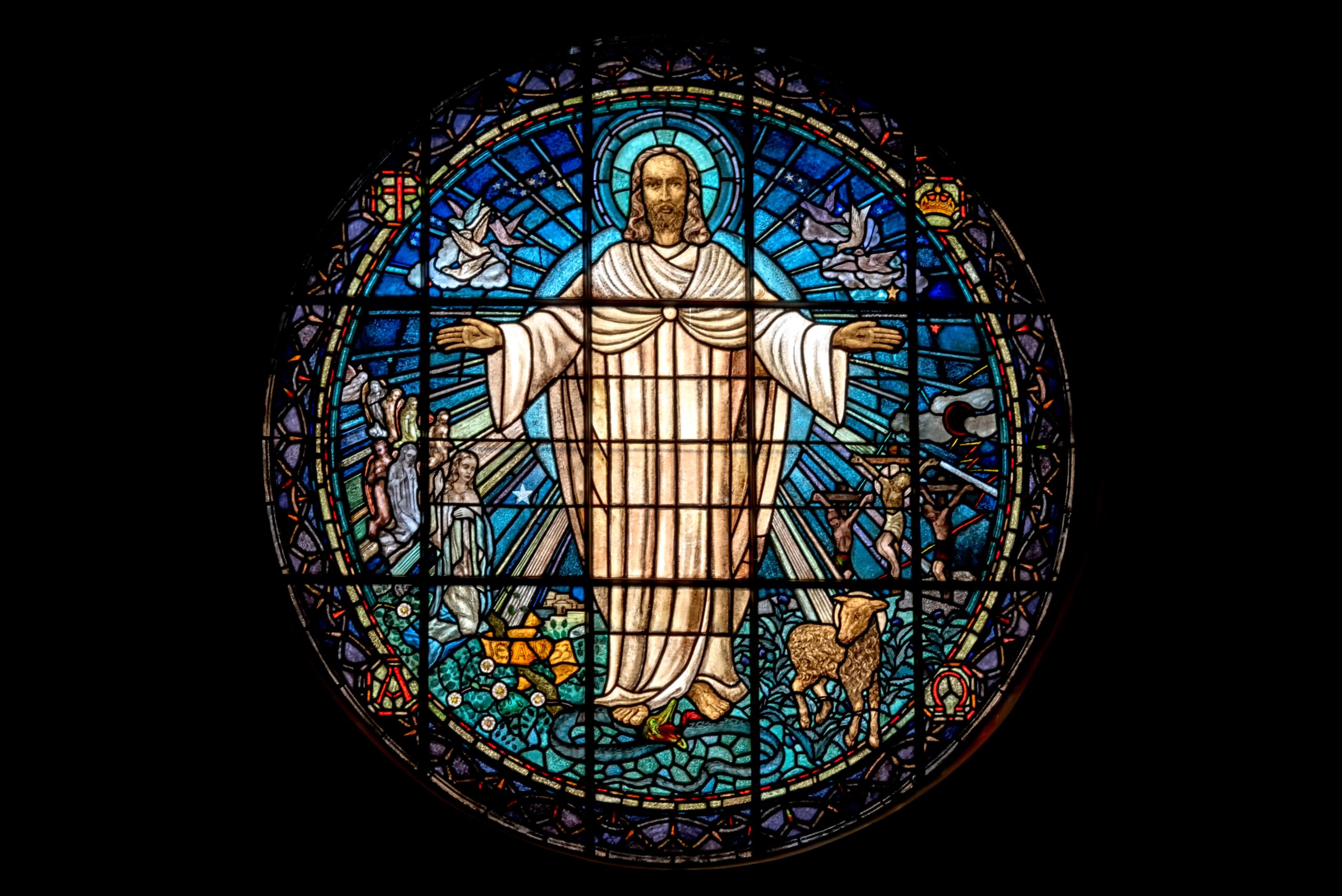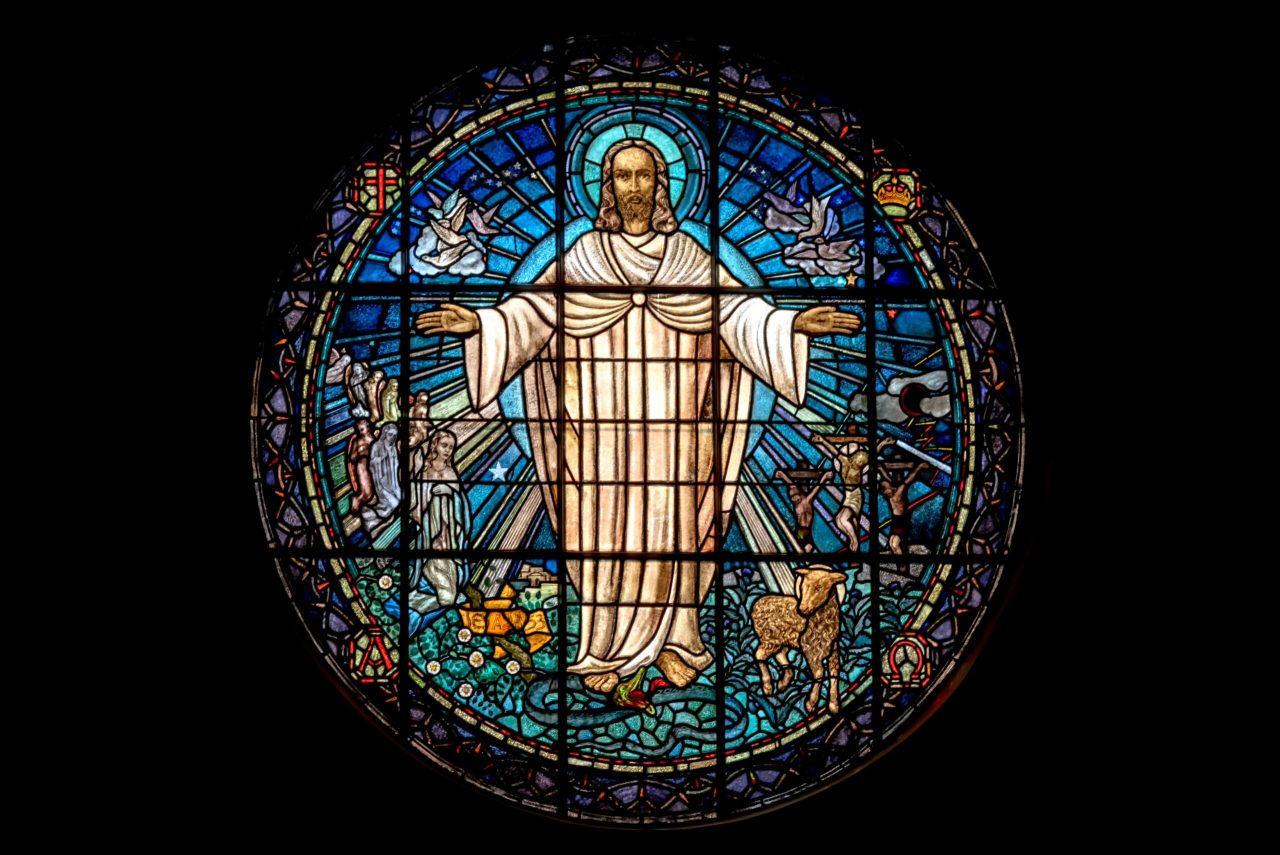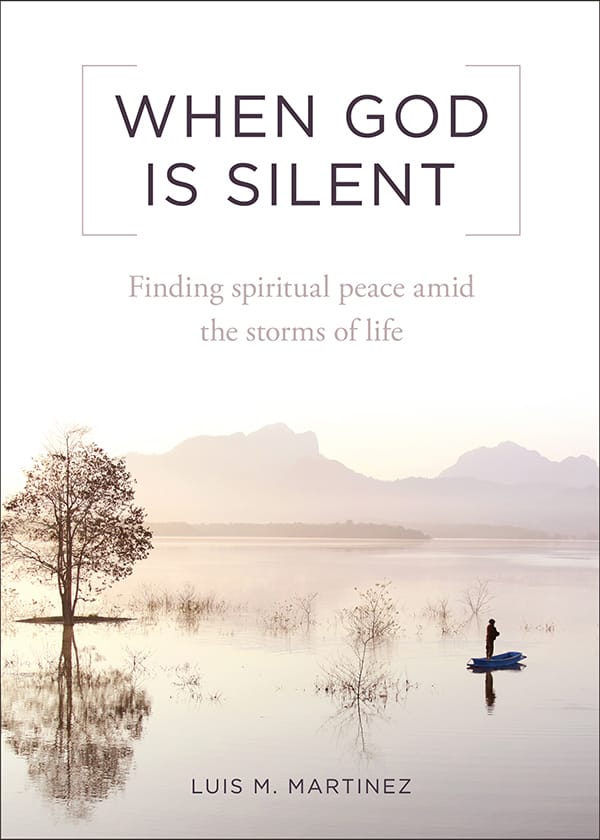
We mark the Octave before Christmas, December 17-23, by praying or chanting the seven O Antiphons during the Vespers (Evening Prayers) of the Liturgy of the Hours.
Here are a few samplings from the first three of these antiphons: “O Wisdom, O holy Word of God, you govern all creation with your strong yet tender care. Come and show your people the way to salvation… O sacred Lord of ancient Israel, who showed yourself to Moses in the burning bush, who gave him the holy law on Sinai Mountain: come, stretch out your mighty hand to set us free…O Flower of Jesse’s stem, you have been raised up as a sign for all peoples; kings stand silent in your presence; the nations bow down in worship before you. Come, let nothing keep you from coming to our aid.”
We can sense from these antiphons that deep desire for the Messiah as well as a strong sense of our desperate need for Him to come and rescue us from the tyranny of the devil, sin, and death.
Jesus also demanded that we must have this deep need for Him all the time, “Those who are healthy do not need a physician, but the sick do. I have not come to call the righteous to repentance but sinners” (Lk 5:31). The sinners he is referring to are not just those who sin but those who also acknowledge that they have habitual sinful tendencies, and they cannot save themselves from their sins and its consequences.
These sinners admit that nothing they do, or experience can cover or take away the scourge of sin from their lives. They thus have a great need for a Savior to save them from their past sins and help them to be faithful to God in each and every moment. Like Levi, the sinful tax collector who abandoned everything and followed Jesus, these sinners follow the Savior with trust and abandonment. As far as they are concerned, Jesus is so necessary for them that there are no other viable options in the face of sin.
This is why I find the latest declaration, Fiducia Supplicans, On the Pastoral Meaning of Blessings Presentation, very disturbing. This document allows for the blessing of people in same-sex relationships under certain conditions. There has been a lot of debate and attempted clarifications from many of the faithful recently and some of them have left me more confused. I will not go in-depth into these.
Some claim that the declaration is only a blessing of same-sex couples and not an endorsement of same-sex relationships. I find that disingenuous because you cannot bless something without granting it tacit approval and encouragement at the same time.
Some claim that this is a pastoral outreach to our brothers and sisters who are experiencing same-sex attractions and are living with such partners. Again, I wonder how many times such persons have ever come forward asking for such blessings in the first place. My guess is that there are not many.
However, reading through this document, one thing is clear – Jesus has become redundant in the Catholic Church, at least as presented by the Church’s hierarchy in this document. This document pretends to provide a paltry blessing by a cleric as an alternative to the truth and saving grace of Jesus Christ. It appears some people, those in same-sex unions, do not really need to submit themselves to Jesus Christ and His saving truth and grace anymore. A bogus blessing of an ordained person will suffice for them in their sinfulness.
Apparently, some people do not have to follow the words of Jesus Christ anymore, “Repent and believe in the Gospel” (Mk 1:14). Some do not have to follow the call to holiness that Jesus offers us, “Be holy as your heavenly Father is holy” (Mt 5:48). Instead of sincerely repenting and trusting in the saving grace of Jesus Christ, our brothers and sisters caught in the intrinsic evil of homosexuality can easily find a priest who will try to soothe their troubled consciences with a specially administered blessing under certain guidelines.
Let me paint a scenario for us to better understand the detrimental import of this declaration. A young man in a homosexual relationship feels the sting of conscience. He feels guilt, isolation, and shame because he has the Natural Law in his heart and he knows that he is acting in a way contrary to the laws that govern human nature, laws that he cannot change or ignore. He feels alienated from God. All the Gay Pride parades of the past years cannot numb his troubled conscience or satisfy his longing for true love and unconditional acceptance.
He is moved by God to seek for full reconciliation with Him in His Church, the Catholic Church. The man knows that he faces an uphill battle, so he hesitates for many reasons. The devil and his sinful flesh whisper to him, “You know that you really do not have to repent of this sin. Can you really live without it after so many years? Were you not born this way? Just ask the priest down the road to give you one of those special blessings that the Church has concocted recently. That will bring you some peace of mind.”
So, he goes to a priest who is more interested in making him feel good and listened to but who does not care for this man’s eternal salvation. Instead of inviting the man to repentance from his sin and reconciliation with God through the sacrament of Confession, instead of highlighting the unconditional love and saving truth of Jesus Christ, instead of pointing to him the power of God’s grace, the priest “discerns” with him and offers him the blessing as Fiducia Supplicans instructs. We call that pastoral accompaniment today!
The man temporarily feels the acceptance that he longs for and goes back to his life of homosexual activity. Eventually, the only thing that he has is a faint memory of the mumbled prayers of the priest during the blessing. Meanwhile, the devil has him where he wants him. The man will surely experience more of the shame, loneliness, fear, anxiety, depression, and hopelessness that comes with persistent sin. Little wonder that there are so many suicides among many in such a lifestyle.
The declaration describes the beautiful reality of a person who seeks such a blessing. “When one asks for a blessing, one is expressing a petition for God’s assistance, a plea to live better, and confidence in a Father who can help us live better” (#21). But this well-intentioned appeal of the few who may honestly seek this blessing is not enough to warrant the mere offering of a blessing without proclaiming the Gospel of Jesus Christ to the person. Our good intentions are definitely not good enough, especially when it comes to the reality of sin and sinful tendencies. We sinners all need the saving truth of Jesus Christ, “There is no salvation through anyone else, nor is there any other name under heaven given to the human race by which we are to be saved” (Acts 4:12). A mere blessing does absolutely nothing for a person in the throes of the mortal sin of homosexuality.
There are many manifestations that Jesus Christ is redundant to many in the Church today. We no longer pursue and preach vigorous conversion from sin for the sake of a lively faith, but we have become experts in covering up our sins and scandals. Young people do not commit to serving God as priests and religious because, for them, Jesus is not really essential today when we have so many idols to keep us entertained and busy, especially the idols of power, property, and sexual pleasure. We have clergy who preach more about climate change than calling all to faith in Jesus Christ. We are more interested in our vaccination status than the quality of our union with Jesus Christ.
I also find this declaration insulting to all those who wholeheartedly commit themselves to the spiritual life and to giving witness to Jesus Christ before all. It is insulting to many of our brothers and sisters who experience same-sex attraction but who, by the grace of Jesus Christ, accept their sinfulness and labor to live pure and chaste lives in this world as devout and faithful Catholics. They frequent the sacraments of the Eucharist and Confession regularly and try to overcome occasions of sin. They never give up on this struggle.
The declaration also disparages those who struggle to raise holy and wholesome children in our culture which is becoming more and more depraved. I mean, why struggle to be holy and to help others be holy when you can simply go and get a spontaneous blessing offered by the Church and feel accepted in your sins?
The declaration also breeds dread about the future. If we can arrogantly pretend to bless same-sex unions today, what are we going to bless tomorrow? Maybe we will be blessing pedophiles too!
Personally, as a priest, Fiducia Supplicans does not do justice to the fact that I am ordained and gifted with the Spirit of Jesus Christ to seek and bring back my wounded brothers and sisters to Jesus Christ, the only Shepherd of souls. I have received the Spirit of Jesus for this purpose, “The Spirit of the Lord is upon me because He has anointed me to bring glad tidings to the poor. He has sent me to proclaim liberty to captives and recovery of sight to the blind, to let the oppressed go free” (Lk 4:18). No priest was ordained to give blessing to people who are living in sin, including the sin of homosexuality.
My priestly blessing is worthless to those in grave sins and even dangerous for my soul if I do not also preach Christ to them, “Woe to me if I do not preach the Gospel” (1Cor 9:16). Despite my own sinfulness, I was ordained to labor to bring them to Jesus Christ and to bring Jesus to them in word, sacrament, and example of life. My priesthood becomes redundant when I consider Jesus and the Gospel redundant.
What are we to do then? Each of us must ask ourselves if we really need Jesus Christ every single day of our lives as we should. Is He just one of the many options that we have or is He the only one who can save us from sin and death? Can we say like St. Peter to Jesus, “Lord, to whom shall we go?” (Jn 6:68) If we need Him as we should need Him, then we will wait for Him as we fervently pray the O Antiphons. Waiting for Him as we should, we will sense His presence with us even now.
But if Jesus is just one of the many options that we have, then we will have no qualms about simply offering a casual blessing to others in their sinful lifestyles. We cannot give what we do not have. We cannot communicate the need for Jesus to others if we do not need Him ourselves. If we do not need Him all the time as we should, then we are waiting for a redundant Jesus. And to wait for a redundant Jesus is actually to wait for no Savior at all.
Glory to Jesus! Honor to Mary!
Photo by Paul Zoetemeijer on Unsplash



